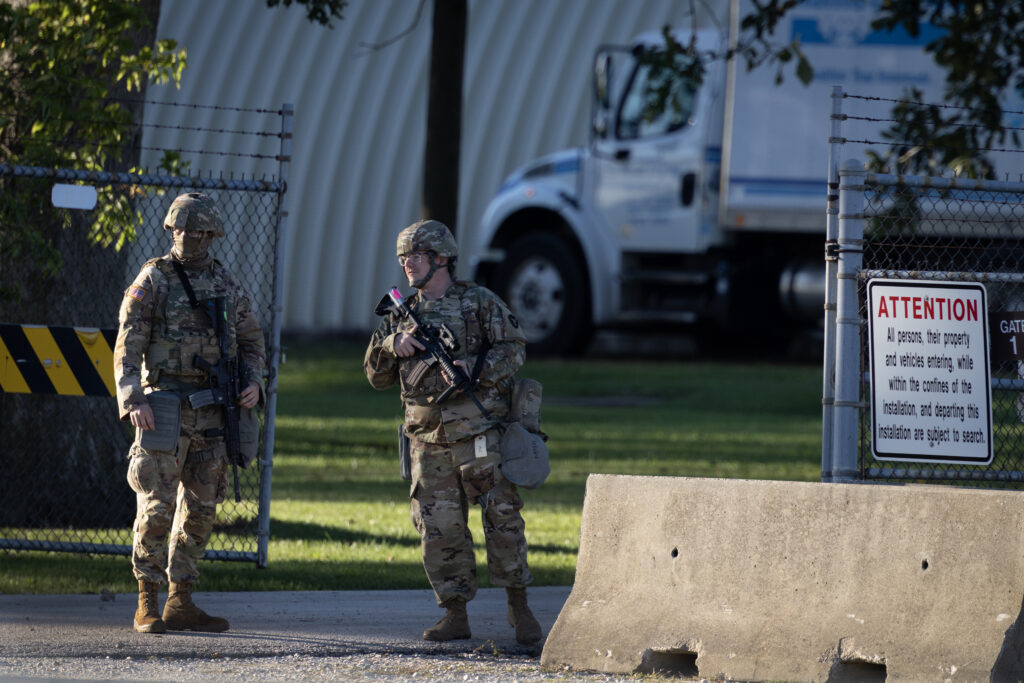Trump Asks Supreme Court to Greenlight Chicago Military Takeover

President Donald Trump asked the Supreme Court Friday to stay a lower court order barring his attempted military deployment in Chicago.
The stay application marks the first time that a block to Trump’s troop deployments around the country has reached the Supreme Court.
The request came a day after a three-judge panel for the Seventh Circuit Court of Appeals partially upheld a federal district court order halting Trump’s military intervention in the Windy City.
Get updates straight to your inbox — for free
Over 450,000 readers rely on our daily and weekly newsletters for the latest in voting, elections and democracy.
The appeals court ruling was a major win for Illinois and Chicago, both of which sued earlier this month arguing that the deployment infringes on the state’s sovereignty and its right to self-governance. It also marked the first time an appeals court officially blocked one of Trump’s National Guard deployments in a major U.S. city.
In its application, Solicitor General D. John Sauer claimed that both the district court and the Seventh Circuit erred in questioning Trump’s authority to deploy troops domestically.
“Both courts were mistaken to conclude that a federal court may review the President’s judgment at all,” Sauer argued.
“Even if the President’s determination to call up the Illinois National Guard were subject to review at all, the government is likely to succeed in showing on appeal that the President acted well within the authority vested in him by Section 12406’s provisions,” the solicitor general added.
Sauer was referring to 10 U.S.C. 12406 (Title 10), an archaic law Trump has repeatedly used to federalize state national guard troops and deploy them into major Democratic-led cities across the country.
The rarely used statute allows the president to federalize state Guard troops when the country faces foreign invasion, when the U.S. government faces rebellion or when the president is unable to execute laws with regular resources.
After threatening to send troops into Chicago for months, Trump last week used the statute to federalize Illinois and Texas Guard troops and deployed them into the city over the repeated objections of local and state officials.
The Trump administration claimed the troops were needed to protect federal property and law enforcement officials from Immigration and Customs Enforcement and other agencies, who it claimed have been unable to carry out immigration arrests due to a “rebellion” in the city.
Chicago residents in recent weeks have staged largely peaceful protests against the Department of Homeland Security’s aggressive and escalatory immigration raids throughout the city.
However, U.S. District Court Judge April Perry, an appointee of former President Joe Biden, quickly halted the federalization and deployment after finding the Trump administration’s account of recent protests unreliable. Perry said that recent protests could not constitute a rebellion.
The Seventh Circuit Thursday evening partially stayed Perry’s order by upholding the federalization of Illinois and Texas Guard members but barring Trump from deploying them anywhere in Illinois.
The appeals court panel, which was made up of judges appointed by Trump, former President Barack Obama and former President George H. W. Bush, agreed with Perry’s assessment that recent unrest did not amount to a rebellion.
“Political opposition is not rebellion,” the panel wrote.
“We conclude that the district court’s factual findings at this preliminary stage were not clearly erroneous, and that the facts do not justify the President’s actions in Illinois,” it added.
In the stay application to the Supreme Court, Sauer not only claimed that the protests were a rebellion but likened them to the Whiskey Rebellion, the 1794 armed uprising of farmers and distillers during the presidency of George Washington.
Illinois and local officials have warned that the Trump administration has deliberately used aggressive immigration raids and escalatory tactics to provoke unrest in the city and create a pretext to deploy troops in Chicago.
Residents have documented instances of federal agents grabbing people by the throat, releasing tear gas on busy residential streets and arresting local elected officials.
In a court hearing last week, Department of Justice attorneys did not disagree with Perry’s assessment that the government could deliberately foment unrest in a city and cite that unrest in deploying troops.
This story has been updated with new details throughout.